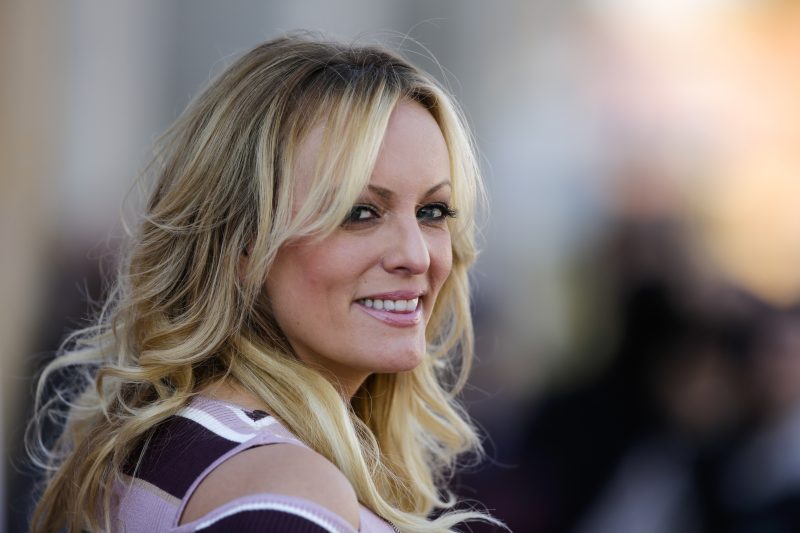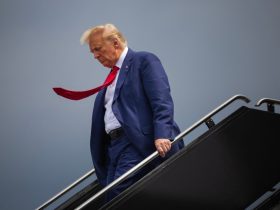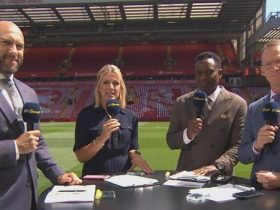By now, it seems pretty clear that Donald Trump could have been prosecuted for having violated federal campaign finance law — that is, were it not for the protection of the office of the presidency, the fruit of the campaign that benefited from those apparent violations.
There would have been more than one route to charging Trump, but the most obvious involved a payment made to adult film actress Stormy Daniels in 2016, shortly before that year’s election. Daniels claims — very credibly — that she had a brief sexual relationship with Trump back in 2006. She’d planned to come forward with that relationship before the 2016 election until Trump’s attorney, Michael Cohen, paid her $130,000 not to. That money, which Cohen said came from a home-equity line of credit, was eventually paid back through the Trump Organization.
Trump has denied involvement in the payoff and has denied having a sexual encounter with Daniels.
As Cohen pleaded guilty to involvement in the scheme, which violated campaign contribution limits, he directly implicated his former boss. Government prosecutors later called out this connection explicitly in a court filing.
“[A]s Cohen himself has now admitted,” a December 2018 document read, “… he acted in coordination with and at the direction of Individual-1”: Trump. While Trump insisted — not very credibly — that the payment was entirely unrelated to the campaign, prosecutors indicated they had recordings of Cohen contemporaneously describing how the payments were meant to protect Trump’s bid.
There, in broad strokes, is the case. The statute of limitations on charging someone for violating campaign finance law, though, is five years, meaning we’re past the point at which Trump might face criminal sanction.
But suddenly, it appears that a different, unexpected door has opened. The district attorney for Manhattan has reportedly empaneled a special grand jury that is considering whether the Stormy Daniels payments involved a legal violation on the part of the Trump Organization. The district attorney, you’ll recall, has been probing the accounting and tax filings of Trump and his namesake business for some time. That the repayments to Cohen were identified as “legal expenses,” the New York Times reports, could open up the company to charges of falsifying business records, a misdemeanor. If, however, that falsification was in service of covering up another crime, it could lead to felony charges.
Here, too, there’s a statute of limitations in play — again, five years. Trump has mostly been outside the state for the intervening period, though, which could allow prosecutors to extend that limit for another five years.
The other, possibly trickier hurdle is the idea that the charges could be upgraded to a felony. The Times suggests that the other crime that the allegedly falsified records were meant to hide was a violation of “a New York State election law.”
How that’s the case, given that the election at issue was a federal one — the presidency — isn’t clear.
“Based on what we know now, it’s not clear what the state law violation would be,” election law attorney Aaron Foldenauer told The Washington Post in a phone call Tuesday.
Trump was on the ballot in New York state that year, certainly, but federal elections in the state are covered by federal election law. A creative prosecutor might try to target Trump or his 2016 campaign for having violated a more esoteric element of state election law, like the statute that makes “conspiracy to promote or prevent election” a misdemeanor. But that’s a stretch.
It’s also possible that the crime being concealed isn’t a state one. According to the criminal statute on which the district attorney is apparently focused, “[a] person is guilty of falsifying business records in the first degree” — the felony iteration — “when he commits the crime of falsifying business records in the second degree, and when his intent to defraud includes an intent to commit another crime or to aid or conceal the commission thereof.” Perhaps the district attorney’s office plans to argue that the alleged falsification aimed to conceal the commission of the federal crime — the alleged campaign-finance violation detailed at the beginning of this article.
In other words, the Manhattan district attorney appears to have empaneled a grand jury aimed at obtaining an indictment against Trump or Trump Organization staffers for claiming that repayments to Cohen were legal expenses when, in reality, they were reimbursements for his hush-money payments to Daniels. Those payments violated campaign finance law (according to the government and Cohen’s own guilty plea) and, therefore, the falsification charge could be a first-degree felony. And Trump could still be charged because he was living outside New York for most of the period since the alleged crime took place — much of that time in Washington, at the White House. Again, but this time ironically: the fruit of the campaign that benefited from those apparent violations.
This is a bank shot on top of a bank shot. But sometimes the ball drops in the pocket.








